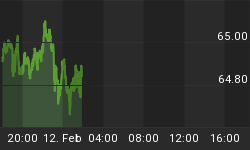In a must-read and think-about article Liam Halligan, Chief Economist at Prosperity Capital Management, expresses his views on the U.S. quantitative easing measures introduced on Friday by Fed Chair Bernanke saying that in his view:
-
they will do more harm than good;
-
will do more harm than good to the U.S. credit rating;
-
harm American consumers as it will fuel future inflation;
-
potentially spark a trade war; and,
-
result in increased reluctance on the part of China and others to keep buying U.S. treasuries.
If he is right or even partially right, the financial markets last Friday (September 14) likely over-reacted on the positive side. If you participate in those markets I suggest you read this well constructed article - and conclude what parts of it you agree and disagree with.
You might want to consider whether it is significant that it has been reported that Egan-Jones Ratings Co. on Friday downgraded its U.S. sovereign rating to AA- from AA+. From its website, Egan-Jones Ratings describes itself as an independent Nationally Recognized Statistical Rating Organization (NRSRO) not paid by corporations issuing bonds. It seems to me the question that arises from this is: What adjustments Fitch, Moody's and Standard & Poor's will make, if any, to the U.S. credit rating going forward.
Topical Reference: US cannot continue the endless sugar rush, from The Telegraph, Liam Halligan, September 15, 2012 - reading time 5 minutes, thinking time longer. Also see Egan-Jones downgrades U.S. rating on QE3 move, from Marketwatch, Wallace Witkowski, September 14, 2012 - reading time 1 minute.
















